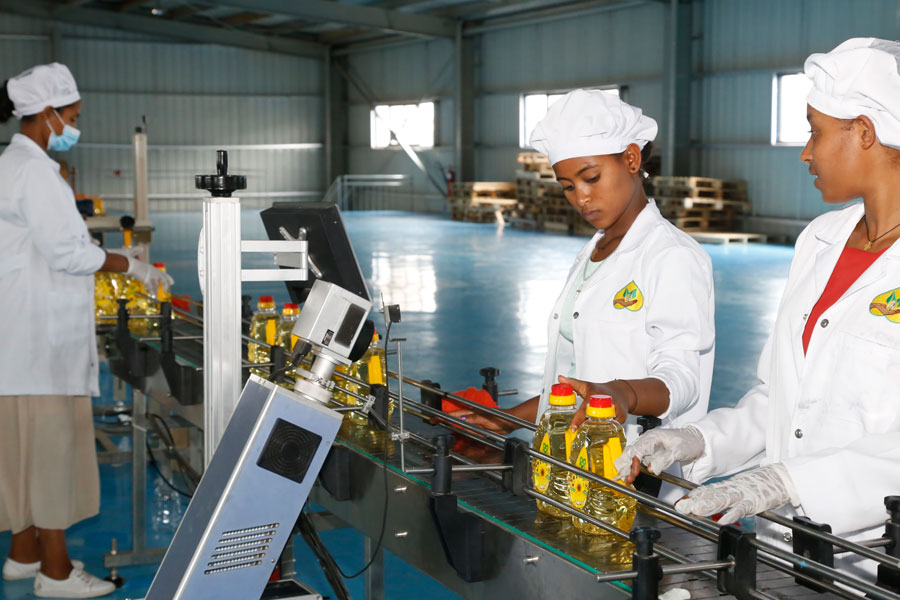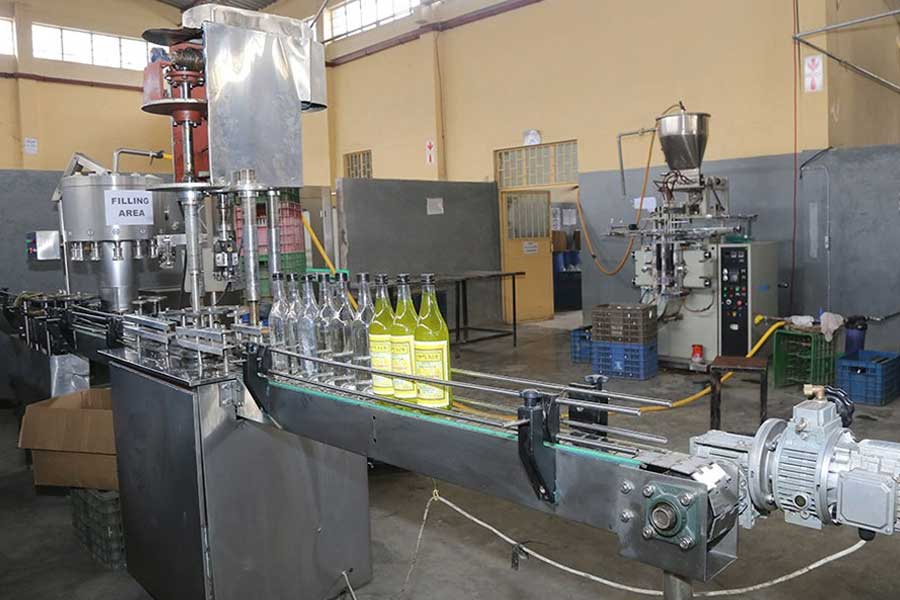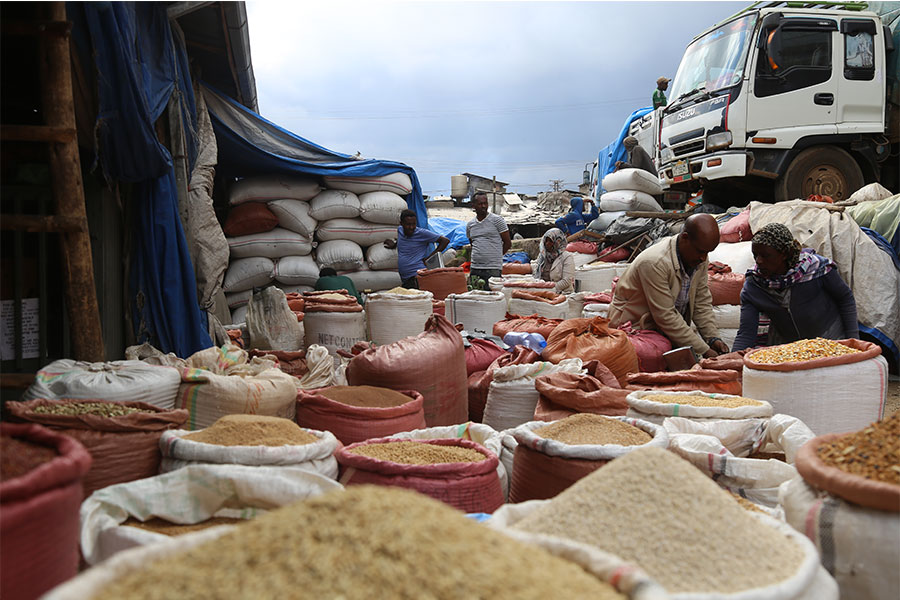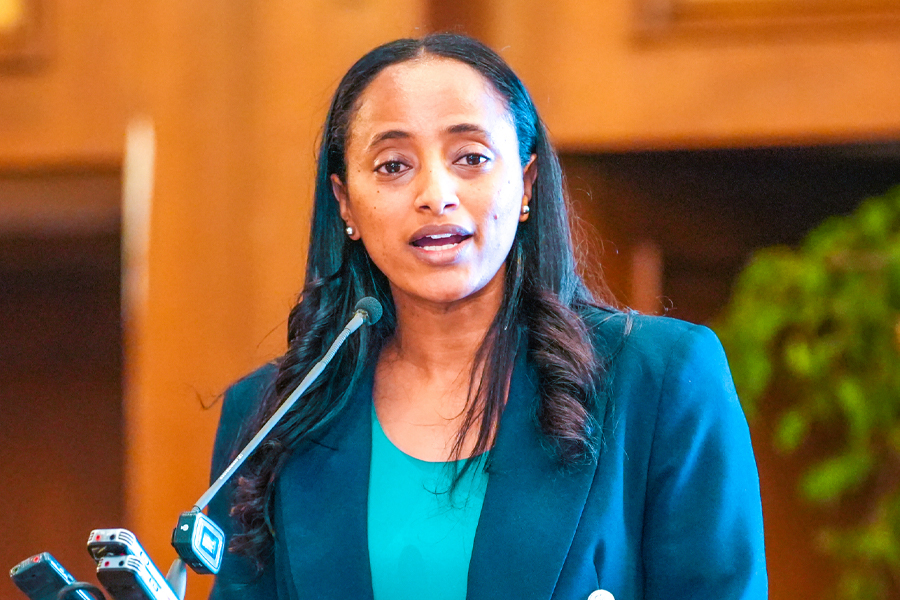
Sunday with Eden | Aug 09,2025
Jul 30 , 2022
By ELSHADAY HAGOS ( FORTUNE STAFF WRITER )
The federal government is to overhaul the technical and vocational education policy, adopting a market-driven scheme, where the labour market drives the demand for specialisations and fields of studies. The Ministry of Labour & Skills has grouped dozens of vocational education and training (TVET) institutions into eight categories, each specialising in specific fields based on demand in the labour market.
Under Muferihat Kamil, the Ministry’s primary mandate is to align the TVET system with the government’s labour policy. It inherited the regime from the former Ministry of Science & Higher Education. Muferihat had previously served as Minister of Peace and a speaker of Parliament. Her deputies plan to implement the labour-driven scheme at 90 TVET schools across the country in the coming academic year.
The prevailing curricular programme is flawed, says Habtamu Mulugeta, director of research and community services. He observes that the labour force graduating from vocational schools is either under or over-qualified for the jobs available in the market. Studies show that many graduates remain unemployed in fields with high demand for a skilled workforce.
Heran Shimelis graduated from an ICT programme at the Addis Abeba Tegbareid Polytechnic College three years ago. She has yet to find a job despite finishing the four-year course.
“I consider it a complete waste of my time,” she told Fortune.
The TVET regime rapidly expanded following legislation governing vocational education in 2004. The number of TVET institutes has tripled to 723 over the past two decades. The student population enrolled in vocational schools increased from 190,000 to nearly 400,000 over the same period.
Addis Abeba hosts 40pc of vocational schools, followed by Oromia and Amhara regionals states.
The proliferation of TVET schools has contrasted the system’s inefficiencies. The government determines the curriculum, specialisations offered at the schools, and the placement of students. Although massive financial resources were directed towards vocational education, most of the funding was spent on physical infrastructure. The programmes on offer remain “inadequate” to address the need for skilled labour.
The revised plan proposes to group vocational schools into eight zones based on the availability of resources and job opportunities. Officials say the goal is to balance demand and supply in the labour market. The programme applies to all but the vocational schools in conflict-torn Tigray Regional State, which hosts 55 government-run TVET institutions.
Six schools in Addis Abeba will implement the new scheme, specialising in priority sectors such as hospitality, manufacturing, and urban agriculture.
The polytechnic college in Addis Abeba is among the schools chosen for piloting the programmes. Established in 1934, the College offers 12 programmes in eight fields, including manufacturing and textile design, to over 3,300 students. They will be downsized to three beginning October 2022, disclosed Anteneh Mulu, vice dean of trainee development.
Programmes related to automotive, biomedical, and electrical engineering will also be available.
Officials observe the arrangement will be crucial in efficiently utilising the limited workforce and resources at their disposal. TVET institutions suffer from a lack of skilled instructors and resource constraints. The bottlenecks contribute to low-quality, theory-driven education.
“Instructors with thorough knowledge of the sectors or those with relatable training will be able to continue in that area,” said Habtamu.
Kombolcha Polytechnic College, 380Km north of the capital, is among the 20 institutions selected in Amhara Regional State. Established in 2001, it offers seven programmes, enrolling 430 students.
“Most of the programmes are similar in content,” said Solomon Negash, vice dean of the College.
The College will lower the number of programmes to three.
Nearly 80pc of the programs offered by TVETs across the country are similar, with automotive technology and construction management taught by 93 vocational colleges. The overlap affects industries that require a skilled workforce trained in different fields.
Established in 1986, Kombolcha Textile Factory has been affected by the lack of a trained and skilled workforce. The company employs 1,500 and regularly hires TVET graduates.
“However, we provide mandatory practical training,” said Abdu Ali, factory branch manager for Addis Abeba. “Graduates are not well trained. They require further training to accomplish specific tasks competently.”
Andualem Zewde, a former Tegbaried trainer, advises the German Agency for International Cooperation (GIZ) on policies.
He believes the new scheme should be time bound and subjected to revision whenever there is a shift in demand.
“The curriculum should also be standardised to make it applicable in all regions,” he said.
GIZ has been a frontline partner for Ethiopia, supporting its reform efforts in vocational and technical education since the mid-2000s.
Muferihat and her deputies plan to scale up the pilot programme to include state-run vocational schools in three years.
“A complete turnover of all TVETs is expected to occur by 2025,” said Habtamu.
PUBLISHED ON
Jul 30,2022 [ VOL
23 , NO
1161]

Sunday with Eden | Aug 09,2025

Editorial | Aug 23,2025

Fortune News | Jan 07,2024

Radar | Jun 24,2023

Fortune News | Feb 26,2022

Featured | Jun 01,2019

Radar | Apr 27,2025

Fortune News | Jul 23,2022

Fortune News | Apr 06,2019

Radar | Dec 05,2020

Dec 22 , 2024 . By TIZITA SHEWAFERAW
Charged with transforming colossal state-owned enterprises into modern and competitiv...

Aug 18 , 2024 . By AKSAH ITALO
Although predictable Yonas Zerihun's job in the ride-hailing service is not immune to...

Jul 28 , 2024 . By TIZITA SHEWAFERAW
Unhabitual, perhaps too many, Samuel Gebreyohannes, 38, used to occasionally enjoy a couple of beers at breakfast. However, he recently swit...

Jul 13 , 2024 . By AKSAH ITALO
Investors who rely on tractors, trucks, and field vehicles for commuting, transporting commodities, and f...

Oct 4 , 2025
Eyob Tekalegn (PhD) had been in the Governor's chair for only weeks when, on Septembe...

Sep 27 , 2025
Four years into an experiment with “shock therapy” in education, the national moo...

Sep 20 , 2025
Getachew Reda's return to the national stage was always going to stir attention. Once...

Sep 13 , 2025
At its launch in Nairobi two years ago, the Africa Climate Summit was billed as the f...